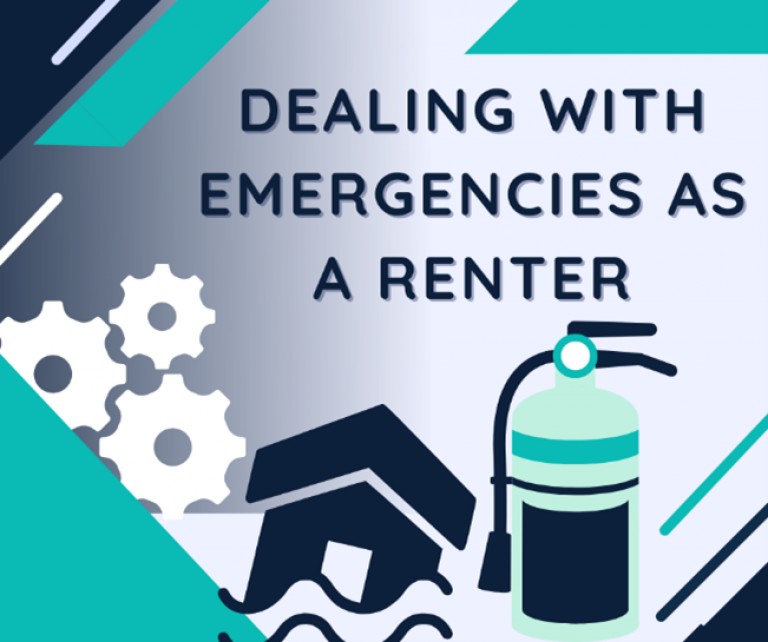


Dealing with emergencies as a renter can be scary. Knowing what you’re actually responsible for versus what you’re not responsible for can be daunting. Knowing your rights and responsibilities as a tenant is a key piece of knowledge to have when going through a blip with your home, whether that’s regarding maintenance issues or a serious disaster, here’s what you can do in the nature of these emergencies as a tenant:
1. Fire damage
If a fire occurs at your property, you should always be aware of where your nearest fire exit is, and where your fire extinguisher is. Your first point should always be to evacuate the building first in an emergency situation, however, if it is a small and contained fire that you are CONFIDENT/trained in putting out yourself, please do so – otherwise please evacuate and leave to the professionals. Once you’ve called the fire brigade, call your landlord to notify them of what has happened. Whether the contents (be it yours or the landlord’s) are damaged, could determine if you are charged a fee or at risk of losing part of, or your entire security deposit.
2. Lost Keys
Lost keys are always a tenant’s responsibility, and if you lose your keys and need to get back into your property, you can request an emergency key from your landlord to which you can pay them for later. Alternatively, you can use the landlord’s master key and purchase your own copy as soon as possible. It is likely that a landlord will do this for you and charge you after.
3. Flooding
Flooding is a tricky nature. If you have a leak or faulty appliance, this would be the landlord’s responsibility. However, as a tenant there are things you can do to help:
Turn off all water supply from the stop cock
Turn off any electricals and try to secure any open sockets
Call the relevant emergency numbers applicable to sort out the flooding.
4. Broken furniture
If your furniture is broken, obviously this will be something you will need to replace. If the property you live in is already furnished by your landlord, you will need to fill in an inventory form which should show you the condition of everything in your home prior to you moving in – if your rented property with furniture is faulty upon arrival, your landlord is the one who will need to replace things. If you break anything, you are liable to be charged or again, risk losing your deposit.
5. Faulty locks
Faulty locks are something that is inevitably going to happen to everyone at some point in your life, and so when this happens – it’s never anyone’s fault, typically. But if and when it does happen, be sure to notify your landlord who should come and fix it ASAP, as it is your right as a tenant to have access to safe and secure housing.
6. Blocked toilet
Blocked toilets are an embarrassing but rare occurrence. Saying that, if you encounter a blocked toilet, for any reason, always try plunging first. Typically, with any household or plumbing issue, your landlord will be liable for the costs. The only instances in which you will be liable to be charged for sending out a plumber would be in the unlikely event that you intentionally cause a blocked toilet. I.e., putting things in the toilet that don’t belong there, for instance, baby wipes, cat litter and so on. (Which, surprisingly, people do still think is okay to dispose of in toilets, even in 2022!)
7. Problematic boiler
Finally, if your boiler encounters any issues, be sure to contact your landlord immediately, as they will be able to send out the relevant authorities to sort out the fault. Apart from that, your duties, in this case, are very minimal. You can always search for instruction guides online if your landlord suggests that they’re happy for you to do this as well.
Now you know how to deal with the unlikely events of dire emergencies (because you’ll never know when you need it) you can rest easy knowing how to plan for it. Take a look at ways to risk assess your property.
By Caitlin Stimpson